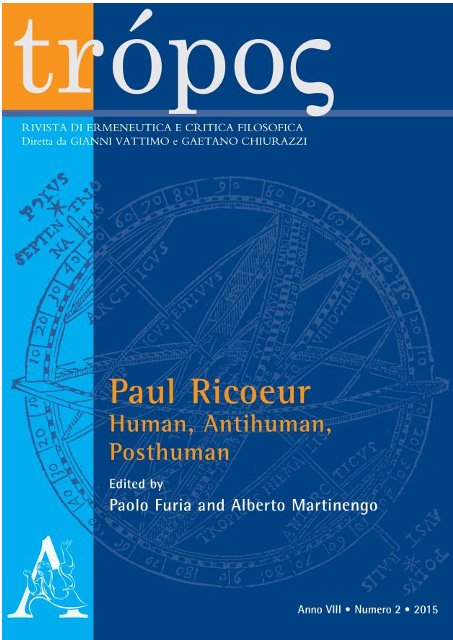Digital Traceability and the Right to be Forgotten
DOI:
https://doi.org/10.13135/2036-542X/7977Keywords:
P. Ricoeur, philosophy of technology, digital studies, G. Simondon, post-phenomenologyAbstract
The goal of this article is to show how Ricoeur’s perspective on traces could be used in the current debate on digital traces and the “right to beforgotten” — the recent ruling by the Court of Justice of the European Union according to which people have the right, under certain conditions, to ask search engines like Google to remove results for queries that include their name. In the first section, the author discusses Ricoeur’s unexpected “love for technology.” In particular, he shows how externalizations — i.e. methods, techniques and technologies—have been at the heart of Ricoeur’s hermeneutical reflections. In the second section, he takes into account Ricoeur’s considerations on traces and memory in Memory, History, Forgetting as potential replies to the several issues posed by digital traceability. The hypothesis is that Ricoeur’s perspective, and especially his motto “you are better than your actions,” could represent an ethical integration of both the juridical imposition of the European Court of Justice and the technical–moral solutions suggested by authors such as Luciano Floridi and Viktor Mayer–Schönberger.


